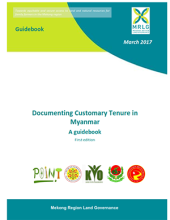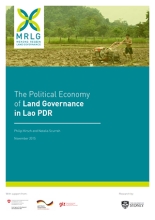Land Library
Welcome to the Land Portal Library. Explore our vast collection of open-access resources (over 74,000) including reports, journal articles, research papers, peer-reviewed publications, legal documents, videos and much more.
/ library resources
Showing items 1 through 9 of 11.This Case Study looks at the implementation of the Vacant, Fallow and Virgin Lands Management Law (VFV Law) in seven villages in Sagaing Region, to assess the practices on the ground and how the law impacts the land tenure security of smallholder farmers.
Land Degradation Neutrality is a new way of approaching land degradation that acknowledges that land and land-based ecosystems are affected by global environmental change as well as by local land use practices.
Located in the arid and semi-arid areas of West Africa, the Sahel has undergone profound changes over the past 50 years.
This guidebook provides conceptual, legal and practical tools and resources to help civil society organizations guide communities through the process of documenting customary tenure at the local level.
In Cambodia, the majority of the population is still composed of smallholder family farmers. 54% of the total labour force is employed in agriculture. They have access to 3.6 million ha of land, representing 19% of the country’s total land.
This country level analysis addresses land governance in Laos in two ways. First, it summarises what the existing body of knowledge tells us about power and configurations that shape access to and exclusion from land, particularly among smallholders, the rural poor, ethnic minorities and women.
Land markets are evolving in response to increasing population pressure in Africa.
High population pressure leads to land use intensification on very small farms.
Population growth in densely populated rural areas leads to increasing rural–urban youth migration.
Rangelands provide numerous goods and services that have great economic, social, cultural, and biological value. Inhabitants of rangelands have engineered pastoral, hunter-gatherer, and farming systems that have sustained their livelihoods in these usually dry environments for centuries.
Significant progress has been made over the past decade or so in the development of policy and legislation that support the recognition of customary rights to land, with important legal rulings in Tanzania, Uganda, Mozambique, South Sudan, and South Africa.





